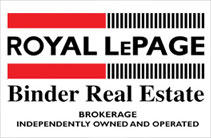Sellers
10 Tips To Find the Right Real Estate Agent for You

Finding the right real estate agent for you is important. You need to be able to trust them, so it is crucial that your personality is well matched with theirs. Just because you see an agent’s “for sale” and “sold” signs throughout the neighbourhood doesn’t necessarily mean they are the “right” real estate agent for you.
When you are selling in a competitive market, you need to be working with someone who is an expert in your area of focus. One of the best strategies for finding your agent, above and beyond word of mouth and referral, is to attend a prospective real estate agent’s open house. Here you can get a hands-on feel for how they operate and see if it matches what you seeking.
When you narrow down your search and are ready to interview an agent, please consider these key questions:
1. What types of properties you do specialize in selling?
2. How long have you been in the business? What is your track record? Can you provide references?
3. What is your commission rate?
4. What do you do to market the property? Do you have a website? Do you advertise, and where?
5. How familiar are you with the area in which my home is? How familiar are you with the area in which I’d like to purchase?
6. Are you willing to hold open houses? How many are reasonable to expect? Are you present for showings? Do you use lockboxes?
7. Can I expect regular feedback from showings?
8. If you were to list my property, what price would you suggest? Why?
9. What would you suggest I do to increase the asking price in my home?
10. Will you terminate the listing if I am not happy?
You need to be comfortable with your realtor and be able to ask them anything. If your inner voice is whispering or yelling “No” then you need to listen to it before you sign the listing contract. If you feel any pressure at all then do not sign it.
When you sign this contract, you are giving permission to the listing agent to gather and obtain any information concerning the property from any persons, government or corporations and to share this information with other parties. In the contract you will also be agreeing on the terms and details regarding commission and duties.
At the same time, the Property Disclosure Statement (PDS) is generally completed. PDS’ tend to vary according to province but it is ultimately a snap shot of the property from the owner’s perspective. This article is vital, as it is incorporated into the purchase contract and can be used against the property owner if any information is omitted or misleading. Ultimately, you need to remember that you are signing contracts, so you need to make sure you review thoroughly and ask questions when you are unsure. Only when you are satisfied with said answers should you sign on the dotted line.




